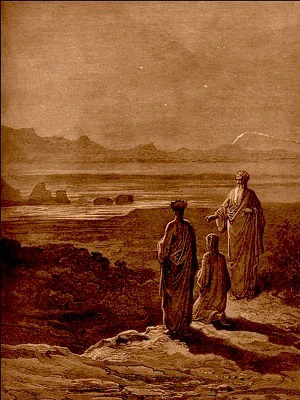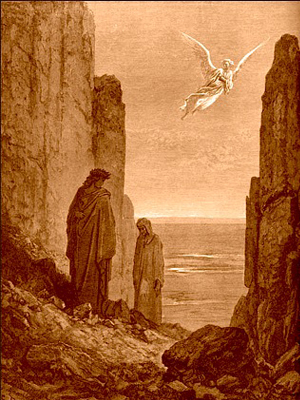
Masonic Articles and Essays
The Only Sin is Forgetting
Very Illus..... Bro. Kristine Wilson-Slack 33°
Date Published: 12/6/2023
A Freemason, upon his Initiation, is washed symbolically in the "river of forgetfulness". But what must he forget and what is he bound to remember?
 Forgetfulness and Remembering: one of our human triumphs and failings. The triumph of memory is that we have the ability to know time, and our place in it. With accumulated knowledge, we work toward wisdom. Memory gives us this and much more. The failing of memory is that it is imperfect. Our memories are highly error-prone and sometimes warped with emotion. We can be absolutely sure of something, only to find out later how wrong we were. Details may be clear and accurate but our minds string them together into events that are, on average, 75% inaccurate.
Forgetfulness and Remembering: one of our human triumphs and failings. The triumph of memory is that we have the ability to know time, and our place in it. With accumulated knowledge, we work toward wisdom. Memory gives us this and much more. The failing of memory is that it is imperfect. Our memories are highly error-prone and sometimes warped with emotion. We can be absolutely sure of something, only to find out later how wrong we were. Details may be clear and accurate but our minds string them together into events that are, on average, 75% inaccurate.
The other failing of memory is that in the struggle with the ego, we choose the worst possible path for ourselves. It wasn’t really that bad, was it? We convince ourselves that everything is okay, and make up some wonderful fiction about what really happened. If you’ve ever talked with people who went through the same experience as you, at the same time, the stories may be vastly different.
So, if memory is so fallible for us and practically guaranteed, why is it sinful?
Let’s first talk of Sin… The definition of sin is “an immoral act considered to be a transgression against divine law.” This seems to be overly strong talk about the act of forgetting, which most of us do. However, religious texts seem to infer that the sin of forgetting really belongs to not being one with the divine. That is, forgetting is human whereas remembering is the purview of God. God cannot forget, and in our quest to be more God-like, we need to work on our memory. The Bible, both Testaments, is abundant with examples of “not forgetting.”
Proverbs 3:1 – My Son, do not forget my teaching, but let your heart keep my commandments.
Isaiah 65:11-12 – But you who forsake the LORD, who forget my holy mountain… I will destine you to the sword…
Luke 22:19 – And he took bread, and when he had given thanks, he broke it and gave it to them, saying, “This is my body, which is given for you. Do this in remembrance of me.”
There’s one more biblical answer: Deuteronomy 4:9: “(NIV) Only be careful, and watch yourselves closely so that you do not forget the things your eyes have seen or let them fade from your heart as long as you live. Teach them to your children and to their children after them.” The idea in Deuteronomy is that forgetfulness is a sin because you are forgetting who you really are in the spiritual sense of the word.
This brought me to Dante’s Purgatorio and the twin rivers of Lethe and Eunoe. Lethe is the river of forgetfulness that sits atop Mount Purgatory and its twin, Eunoe, also is on the top of Mount Purgatory. These rivers are always used in tandem: Lethe means “forgetfulness” and Eunoe means “good mind.” Dante indicated that on the spiritual journey before one can enter Paradise (or Heaven), one must be washed in these two rivers so that one’s soul (including memory) will be pure and clean. It’s no accident that these two rivers seem to emerge from the Garden of Eden, a place of purity and clarity. The source of humanity, maybe?
When one is washed in the river Lethe, one forgets all memory of sins of your past life. You have passed through Hell, according to Dante, and you have ascended through Purgatory. You can’t take it with you, in all senses of the meaning. Perhaps it means that you shouldn’t take it with you. You need to make space for the divine within you.
 Once you have washed in Lethe, you are guided and washed in Eunoe. The implication of Eunoe, “good mind,” is that not only are past good works enhanced in your mind but that your will for continuing good works is also enhanced. It is speculated that the forest at the top of the mountain, as noted above, is The Garden of Eden and that the entirety of Purgatory is actually the “terrestrial paradise.” Could this be the necessary step for all of us to enter Paradise?
Once you have washed in Lethe, you are guided and washed in Eunoe. The implication of Eunoe, “good mind,” is that not only are past good works enhanced in your mind but that your will for continuing good works is also enhanced. It is speculated that the forest at the top of the mountain, as noted above, is The Garden of Eden and that the entirety of Purgatory is actually the “terrestrial paradise.” Could this be the necessary step for all of us to enter Paradise?
Dante’s implication is that Matelda, who is Dante’s guide at the top of Purgatory, is akin to many of the judges of humans, such as Anubis, Ma’at, Astraea, or Persephone. Matelda seems to be the guide who does the judging – do you end up moving on or returning through the underworld. The idea of this passing through the rivers before ascending to Paradise seems to be that in order to remember our divinity, we need to forget our sins. Or, perhaps we need to recognize our sins but then forget the earthliness of our nature and ultimately remember our divine natures.
This is reminiscent of a Masonic phrase, “erect Temples to Virtue and dig dungeons to Vice.” This isn’t only an admonishment to dedicate your work to the divine and betterment of humanity but also to build up the “good mind” and positive qualities within ourselves. In digging dungeons to Vice, I believe this could be the forgetfulness that is implied by Lethe. That is, we need to dig and bury those appetites and addictions that keep us tethered to the material world, we need to “forget” the animal and material nature of who we are. Alternatively, we need to do the work that builds the will in us to be the best we can be.
If we are fallible humans, how can this be? This appears to be the reason that Eunoe or the “good mind” or virtue exists. It provides us the divine strength for us to continue to move toward better. So, the sin of forgetting is when we forget our divine natures; we forget that we can sink low without memory and effort to move forward. Forgetting is a willful ignorance of our natures. Despite our frail human capacities, we need to continue to forget our vices and remember our virtues. For Masons, to stay on the path of perfecting humanity is to remember the divinity that IS us.
